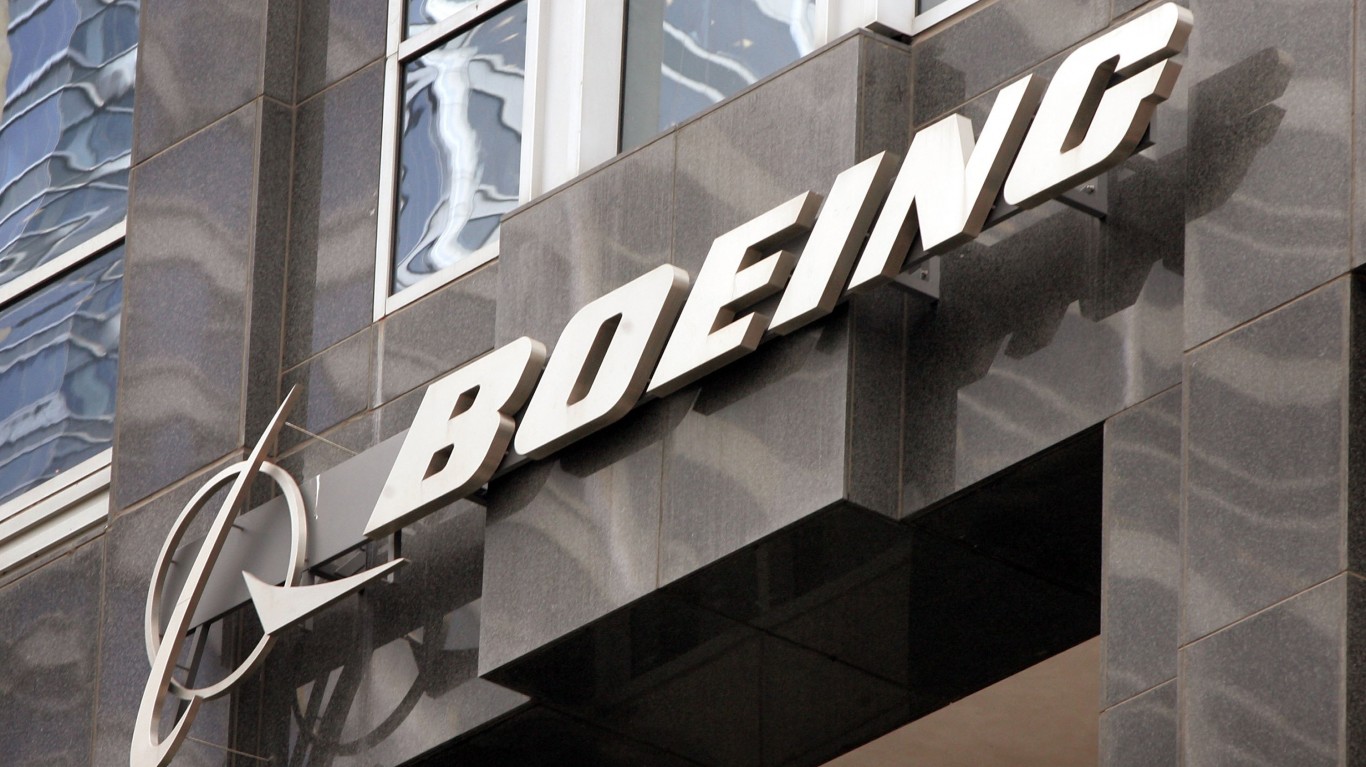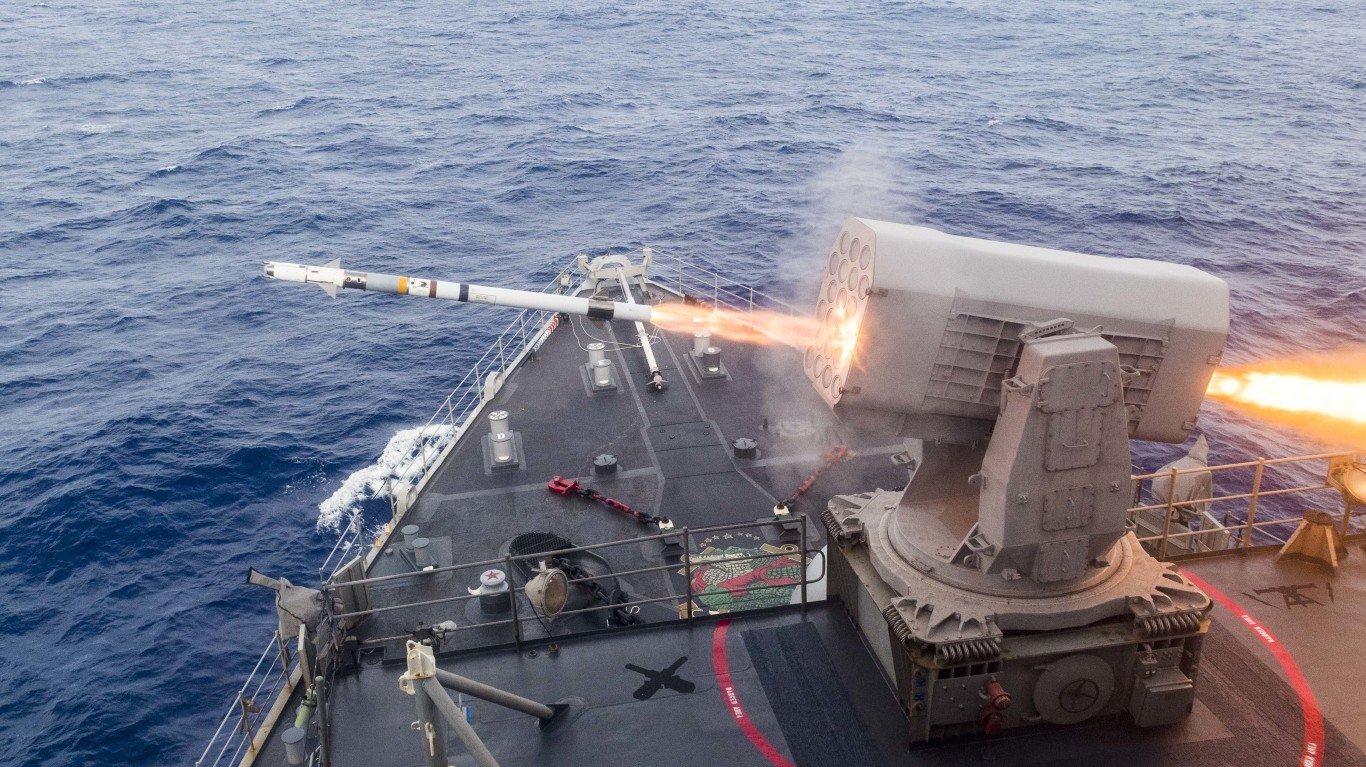

If you were only watching shares of Boeing Co. (NYSE: BA) in 2019, you might never know there was a raging bull market that’s now a decade long. At the start of 2019, Wall Street analysts on average had a consensus analyst target of $417.60, implying a gain of nearly 30%, without bothering to add in that 2.5% yield at the time. That is after a 9% gain in 2018 and an 89% gain in 2017. All that was before two deadly crashes involving its new 737 Max caused the fleet of that plane model to be grounded by all airlines. Boeing was last seen up just 2.5% or so in 2019, when the Dow Jones industrials and S&P 500 were both up well over 20%, and have both kept hitting all-time highs.
Now that the decision has been made to suspend production of new 737 Max planes starting in January, all sorts of revenue and expense models are going to have to be adjusted. Some equity analysts have lowered their price targets over the course of this year and after the decision to suspend production. So far, Boeing had been more or less able to escape with its credit rating agencies still behind the company.
That credit rating has now come into debate. 24/7 Wall St. has seen all three major credit ratings agencies make much more cautionary statements against Boeing and its future reputation. These come from S&P Global, Moody’s and Fitch Ratings.
S&P Global downgraded Boeing’s credit rating based on confusion over when regulators actually will allow the 737 Max to start flying commercially again. The report called the plane out as the top-seller in the company’s history before it was grounded. S&P downgraded Boeing’s long-term credit rating to A- from A. Boeing’s short-term credit rating was also downgraded to A-2 from A-1 in the report. S&P warned of the uncertainty over when the 737 Max will be able return to service. It also warned of risks to its supply chain from the planned production halt in 2020, as well as warning that Boeing’s competitive position may have been affected.
Moody’s downgraded its ratings (along with the senior unsecured and short-term debt) to A3 from A2 and to Prime-2 from Prime-1, respectively. Moody’s also showed that it has downgraded the senior unsecured rating for Boeing Capital (guaranteed by Boeing) to A3 from A2 and downgraded the senior unsecured rating on Boeing’s FLT Industrial Revenue Bonds Ser. 1999A to A3/VMIG 2 from A2/VMIG 1. After the credit review, Moody’s did note that Boeing’s outlook for both entities was changed to “stable” from “negative.”
Jonathan Root, Moody’s lead analyst said:
The downgrades follow the extension of the grounding of the 737 MAX into 2020, the announced plan to shut down this important program for some interim period, and the uncertainty and elevated risk — both financial and operational — for Boeing and its broader supply chain over the ensuing period.
Moody’s also noted the regulatory uncertainty regarding when the 737 Max will be allowed to return to service, as well as potential future regulatory burdens. The suspension 737 Max production for an unspecified timeframe will increase costs for the program that also include ongoing financial support to many of Boeing’s suppliers. Also worth noting is that this extended grounding period will increase claims for compensation by both airlines and lessors. Moody’s further said:
The program costs that will be accrued and realized pro-rata with future deliveries, and anticipated increases in compensation claims by airlines will lower the 737 program margins and cash generation for years to come. Moreover, Moody’s considers that Boeing’s reputation can be adversely affected as the grounding extends and from its governance mis-steps with broadening social considerations related therefrom, which could have a more lasting impact on the company’s business.
Fitch warned of an impact to Boeing but has not made a formal downgrade. Still, it has alluded to suppliers (GE and Safran) and competitors (Airbus). That report said:
Boeing’s decision to suspend production of its 737 MAX airplane programme underscores risks of the aerospace sector, both for airliner producers and their suppliers, Fitch Ratings says. Our ratings in the industry incorporate periodic stresses. The exact credit impact will largely depend on the length of suspension and the timing of the 737 MAX’s return to service, and on potential regulatory changes.
Boeing’s 737 MAX, and the A320neo from its main competitor Airbus, are the largest commercial airplane programmes worldwide and account for significant shares of the companies’ order books. As a result, any significant difficulties with these flagship programmes affect the manufacturers’ operations, financials and reputation, which in turn affect their suppliers.
The impact of the MAX suspension should be temporary unless substantial orders are cancelled. Our rating case assumes the MAX groundings will be lifted in phases by different regions through early 2Q20 and that deliveries in various regions will resume shortly afterwards. We believe that Boeing’s credit profile can support temporary MAX-related stresses due to substantial liquidity, financial flexibility, access to the capital markets, and revenue diversification. Aside from the MAX, Boeing’s products and markets are healthy. We affirmed the company’s ratings at ‘A’/F1/Negative on 17 December 2019 following the production suspension announcement.
Thank you for reading! Have some feedback for us?
Contact the 24/7 Wall St. editorial team.
 24/7 Wall St.
24/7 Wall St.

